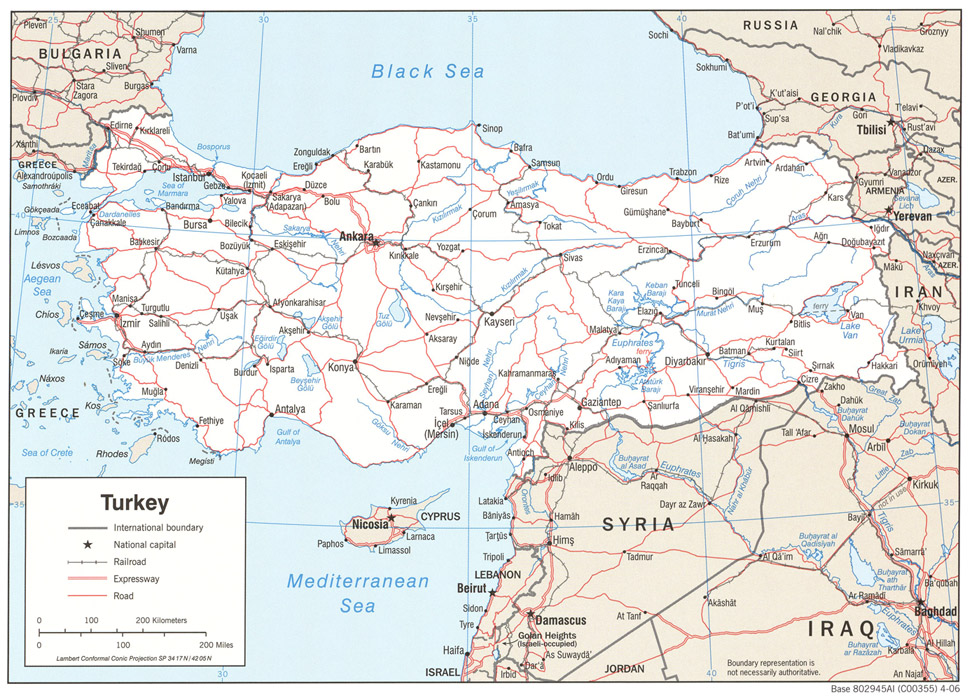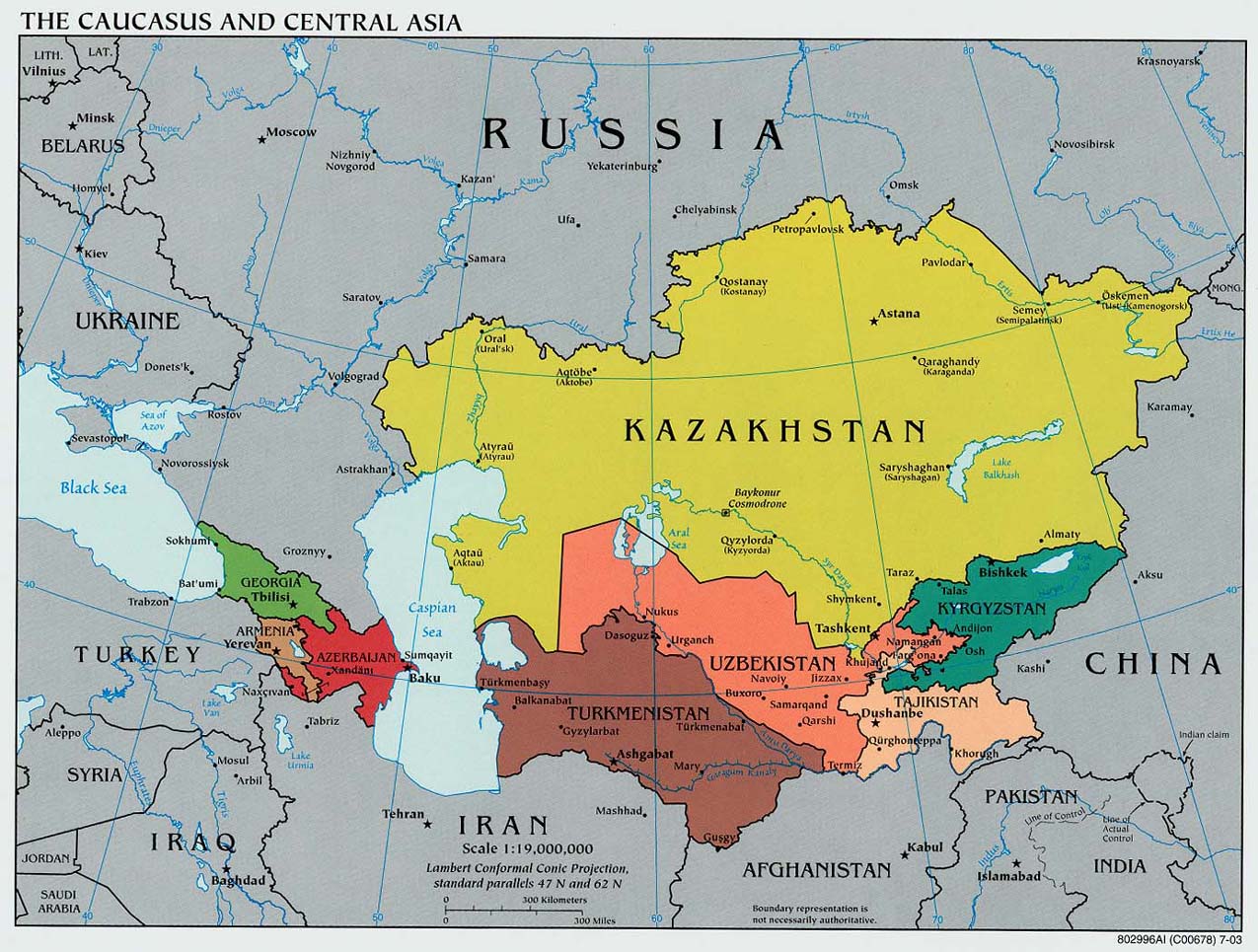 Yesterday, I attended the Third Annual Sakip Sabanci lecture at The Brookings Institution, a joint presentation of Sabanci University and Brookings. The lecture series is devoted to developing scholarship concerning Turkey's relationships in the international system. The speaker was former Ambassador Richard Holbrooke, who has been involved in U.S. diplomatic efforts since at least the Vietnam War, through the Dayton Accords, and onward.
Yesterday, I attended the Third Annual Sakip Sabanci lecture at The Brookings Institution, a joint presentation of Sabanci University and Brookings. The lecture series is devoted to developing scholarship concerning Turkey's relationships in the international system. The speaker was former Ambassador Richard Holbrooke, who has been involved in U.S. diplomatic efforts since at least the Vietnam War, through the Dayton Accords, and onward.

Ambassador Holbrooke's speech, entitled “Turkey and America: Indispensible Allies at a Crossroads,” did not touch upon Central Asia, but some of its themes are well worth discussing in regard to the region. The U.S. has always held Turkey up as a model to Central Asian Republics, primarily because its democratic institutions are working very well for a predominantly Muslim population (recent upheavals notwithstanding). Second, Turkey has some linguistic and other cultural predispositions shared by four of the five Central Asian states (Tajikistan is not Turkic, but Persian). Third, Turkey has remained a secure state within itself, despite its contentious neighborhood; and last of all, Turkey has developed its trade and commerce to levels that Central Asia could conceivably emulate.
Dreamers with pencils and a map
Over the past few years, analysts have written that the US underestimated Turkey's potential influence in the region. Since Turkey's expanding commercial and political presence in Central Asia was always going to be a heavily US-sponsored political-economic venture, I find this an interesting conclusion to make.
The idea of a pan-Turkic sphere of influence, or whatever one wishes to call it, failed to account for the primary national ambitions of Turkey, not to mention those of Central Asian states. These and other barriers could have been negotiated through capable sponsorship. As with many international relations initiatives post 9/11 however, the US has failed to provide that sponsorship. Instead, the notion has dwindled through inattention and through compelling geopolitical distractions.
Taking Turkey for granted
Three reasons for Turkey's lack of influence in Central Asia are related to a careless disregard of Turkey's friendship. First of all, Turkey, as Mr Holbrooke called it, is a “front-line state between the clash of civilizations”, and the diplomacy between Turkey and other predominantly Muslim states is the new priority the West has conceived for Turkey. That diplomacy is extensive: Turkey has become an economic and political advisor to many states of the Middle East, helping them navigate a sometimes unattractive, Westernizing globalization to everyone's benefit. The West's best friend in Eurasia is a neighbor to Syria and Iran, with whom the US is not speaking, and Iraq. Furthermore, the war in Iraq has given Turkey more complicated security issues of its own, with the US as well as Kurdish extremist groups.
US activity in Iraq has made it less focused upon Central Asia, and caused it to lose popular support in European democracies, which means that other geopolitical issues have been allowed to simmer. For Turkey, trouble in the Caucasus, particularly between Georgia and Russia, also affects this US ally's investments in security, energy transport and other types of commerce in general for its eastern region.

Iraq, Chechnya, Russian-Georgian tensions, and Iraqi Kurdistan aside (if you can actually put those aside), the diplomatic push to Central Asia would have been better accomplished with the backing of strong economic ties within the European Union. As we all know, Turkey's desire to be a member of the EU has motivated it internationally and internally to great effort. Closer links to the EU would have given Turkey more economic backing to make that push into Central Asia, and freed up the diplomatic cadres geared toward the EU accession effort. Furthermore, states in Central Asia cannot help but note Europe's constantly-changing criteria for Muslim nations attempting to forge European relationships.
Taking Central Asia for granted
For a major economic relationship between Turkey and Central Asia, sustained great power sponsorship continues to be required. The other states vying for strong political and economic ties in the region are Russia and China, and they have developed some attractive trade and collective security arrangements for Central Asian states, with which Turkey cannot compete alone. Recent Chinese investment in Central Asia includes sponsorship of many energy and integrated transportation projects of the Asian Development Bank. Investment by Russia includes the Eurasian Development Bank, another venue for infrastructure development. These are projects that Central Asian leaders and constituents can view as concrete improvements in Central Asian daily life and economic health. NATO and OSCE have not been quite as forthcoming. Again, the geopolitics of Afghanistan and the Middle East continue to occupy NATO states when they might well have coordinated more efforts with Central Asian Republics as their object.
In short, US and European analysts are now to the point of blaming Turkey for not following through on an initiative that these self-same analytic communities have set up for them, based upon an economic and political reinforcement that has not materialized (EU accession), new Middle East geopolitics we did not envision (Iraq, Iran, Afghanistan), and an avenue of opportunity with Central Asia we have not maintained. It is small wonder that Turkey's desire to join the EU has dimmed, and that US-Turkey bilateral relations have suffered in recent years.
References/Alternate Views:
RFE/RL 2005, Central Asia: Iran, Turkey struggle to influence region
EU Observer, 2007, May 5: EU should consult Turkey on new Central Asian foreign policy
Asia Times Online, 2007, May 12: Turkey stakes a Central Asian claim
Other Brookings Institution events and papers concerning Turkey are here; Ambassador Holbrooke's comments will be available at that site soon.
Sabanci University home page
Thanks to Sabanci University and The Brookings Institution for the opportunity to attend the Third Annual Sakip Sabanci lecture.
Photos: KLRU.org/Texas Monthly;
Maps: UT's Perry-Castaneda Library (links at right)